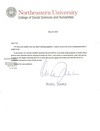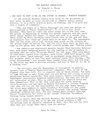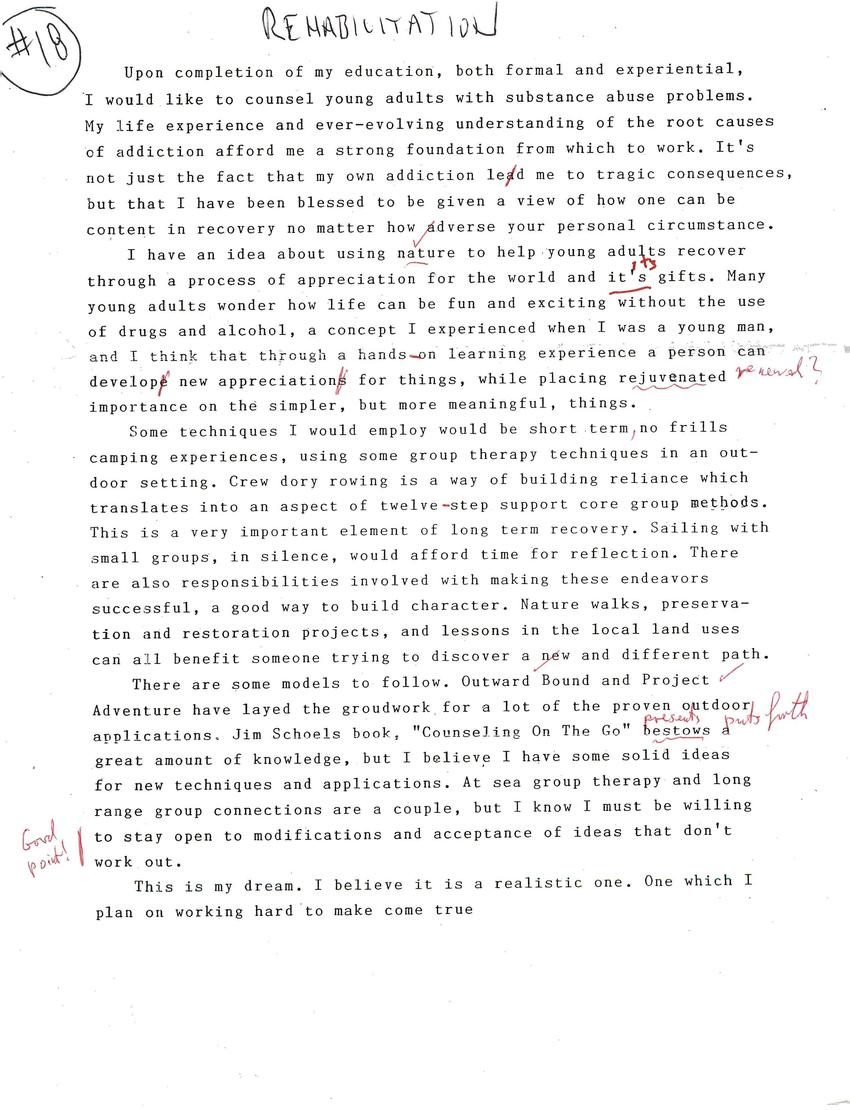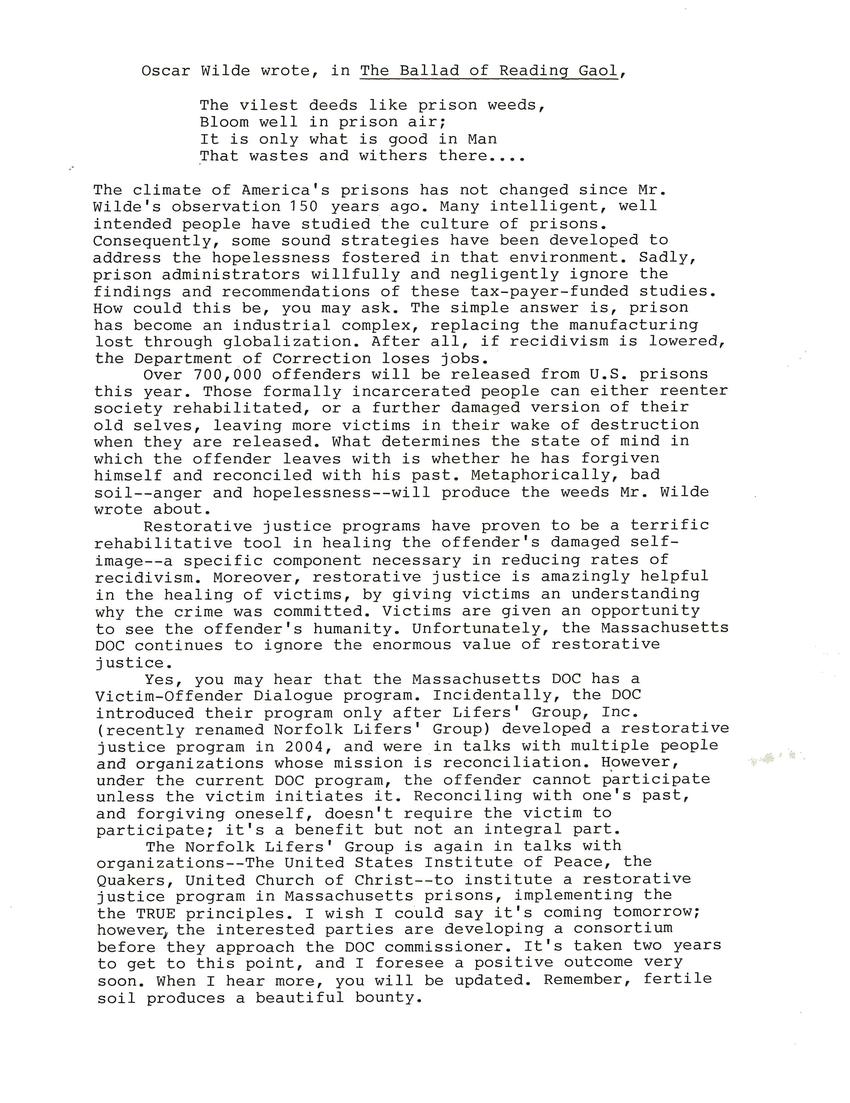
Transcription
REHABILITATION
Upon completion of my education, both formal and experiential, I would like to counsel young adults with substance abuse problems. My life experience and ever-evolving understanding of the root causes of addiction afford me a strong foundation from which to work. It's not just the fact that my own addiction led me to tragic consequences, but that I have been blessed to be given a view of how one can be content in recovery no matter how adverse your personal circumstance.
I have an idea about using nature to help young adults recover through a process of appreciation for the world and its gifts. Many young adults wonder how life can be fun and exciting without the use of drugs and alcohol, a concept I experienced when i was a young man, and I think that through a hands-on learning experience a person can develop new appreciation for things, while placing rejuvenated importance on the simpler, but more meaningful, things.
Some techniques I would employ would be short term, no frills camping experiences, using some group therapy techniques in an outdoor setting. Crew dory rowing is a way of building reliance which translates into an aspect of twelve-step support core group methods. This is a very important element of long term recovery. Sailing with small groups, in silence, would afford time for reflection. There are also responsibilities involved with making these endeavors successful, a good way to build character. Nature walks, preservation and restoration projects, and lessons in the local land uses can all benefit someone trying to discover a new and different path.
There are some models to follow. Outward Bound and Project Adventure have laid the groundwork for a lot of the proven outdoor applications. Jim Schoel's book, Counseling On the Go, bestows a great amount of knowledge, but I believe I have some solid ideas for new techniques and applications. At sea group therapy and long range group connections are a couple, but I know I must be willing to stay open to modifications and acceptance of ideas that don't work out.
This is my dream. I believe it is a realistic one, one which I plan on working hard to make come true.
Oscar Wilde wrote, in The Ballad of Reading Gaol,
The vilest deeds like prison weeds,
Bloom well in prison air;
It is only what is good i Man
That wastes and withers there ....
The climate of America's prisons has not changed since Mr. Wilde's observation 150 years ago. Many intelligent, well intended people have studied the culture of prisons. Consequently, some sound strategies have been developed to address the hopelessness fostered in that environment. Sadly, prison administrators willfully and negligently ignore the findings and recommendations of these taxpayer-funded studies. How could this be, you may ask. The simple answer is, prison has become an industrial complex, replacing the manufacturing lost through globalization. After all, if recidivism is lowered, the Department of Correction loses jobs.
Over 700,000 offenders will be released from U.S. prisons this year. Those formally incarcerated people can either reenter society rehabilitated, or a further damaged version of their old selves, leaving more victims in their wake of destruction when they are released. What determines the state of mind in which the offender leaves with is whether he has forgiven himself and reconciled with his past. Metaphorically, bad soil -- anger and hopelessness -- will produce the weeds Mr. Wilde wrote about.
Restorative justice programs have proven to be a terrific rehabilitative tool in healing the offender's damaged self-image -- a specific component necessary in reducing rates of recidivism. Moreover, restorative justice is amazingly helpful in the healing of victims, by giving victims an understanding why the crime was committed. Victims are given an opportunity to see the offender's humanity. Unfortunately, the Massachusetts DOC continues to ignore the enormous value of restorative justice.
Yes, you may hear that the Massachusetts DOC has a Victim-Offender Dialogue program. Incidentally, the DOC introduced their program only after Lifers' Group, Inc. (recently renamed Norfolk Lifers' Group) developed a restorative justice program in 2004, and were in talks with multiple people and organizations whose mission is reconciliation. However, under the current DOC program, the offender cannot participate unless the victim initiates it. Reconciling with one's past, and forgiving oneself, doesn't require the victim to participate; it's a benefit but not an integral part.
The Norfolk Lifers' Group is again in talks with organizations -- The United States Institute of Peace, the Quakers, United Church of Christ -- to institute a restorative justice program in Massachusetts prisons, implementing the TRUE principles. I wish I could say it's coming tomorrow; however, the interested parties are developing a consortium before they approach the DOC commissioner. It's taken two years to get to this point, and I foresee a positive outcome very soon. When I hear more, you will be updated. Remember, fertile soil produces a beautiful bounty.
Other posts by this author
|
2017 jun 24

|
2017 jun 24

|
2017 jun 24

|
2017 jun 24

|
2017 jun 18

|
2017 jun 15

|
More... |



Replies (4)